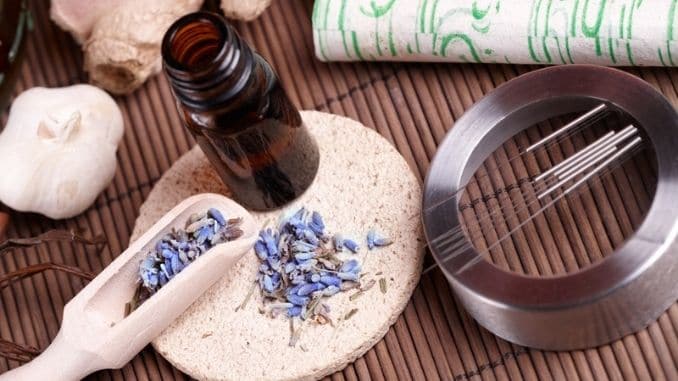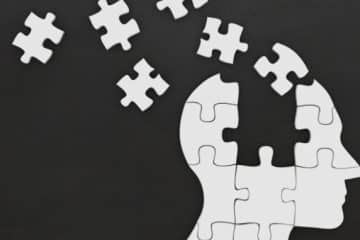Yin and Yang is a huge component of Chinese medicine. The principle behind Yin and Yang is that all things exist as inseparable and contradictory opposites. Some examples of this includes day & night, old & young, and male & female. Yin and Yang should be thought of as complementary, rather than opposing.
4 Main Components in Your Body:
- Yin
- Yang
- Qi
- Blood
For your body to be in perfect health, these 4 aspects need to be balance, most especially Yin and Yang.
What is Chinese Medicine?
Chinese herbal medicine dates back to roughly the 3rd century BC. It is the medicines of all medicines.
Most people think of herbs as just being a plant, but in fact, Chinese herbs fall under a huge umbrella of any naturally occurring substance that has a therapeutic benefit. There are thousands of herbs in the Chinese medical pharmacopeia, including plants where every specific part of the plant has a different effect.
For instance, one part of the plant, like the seed, may have a cooling effect. Whereas another part of the plant, like the leaf, may have a very warming effect. Herbal medicine can also include rocks, bugs and animals.
When used correctly, Chinese herbs can have little to no side effects. There may be one specific component of an herb or plant that has a therapeutic effect.
The other parts of the leaf or plant help to balance this powerful effect, which in turn decreases the chance of any negative side effects.
Chinese herbal medicine is based on the concept of Yin and Yang, Qi and Blood. As discussed in this article, for the body to be healthy you need to have sufficient Qi and blood; and yin and yang need to be balanc.
What are Yin and Yang?
Yin and Yang are simply a way of comparing two things, essentially the concept of dualism. How do you tell which is which?
We can figure that out by understanding the nature of Yin and Yang. Roughly translated, Yin is negative, dark, and feminine. Conversely, Yang is positive, bright, and masculine.
Their interaction is thought to maintain the harmony of the universe and to influence everything within it. For example, Yin is the dark, lack of light or night. Yang is the light of day.
Examples of Yin:
- Being very cold
- Winter
- Sleep
- Femininity
- Stillness
Examples of Yang:
- Hot
- Summer
- Awake
- More masculine component of the two
- Activity and movement.
You can have smaller aspects of this in all scenarios. A bright sunny day is Yang within Yang, but a cloudy and dark day is more Yin within Yang. They are interdependent to each other. You need Yin to have Yang and vice versa.
Question: Can an imbalance affect sleep? Meaning you do not sleep one night and the next night sleep with no issues? – Chris Kutyna
Answer: Yes, an imbalance can affect sleep for sure. Usually, when you talk about Yin Yang, it is within a 24-hour period. If you’re up all night, like you’re studying for an exam or you just can’t sleep, you’re going to be very Yang within Yin, which is nighttime.
The next day, you’re probably going to be sleepy all day, so that’s Yin within Yang. Then hopefully the next night you’re going to be able to sleep in order to balance those two out.
Yin and Yang can also turn into each other. They can inter-transform, which means Tah Yin can turn into Yang and vice versa. One way to think of this is by using the awake and sleep example in the answer provided above.
As you wind down your day, your awaken state turns into fatigue and eventually you go into the sleep phase. Yang reaches its peak at midday, then it will slowly begin to transform into Yin.
Yin Yang Symbol Meaning:

The first relationship of Yin Yang is opposition, shown by the black and white colors each taking up 50% of the circle, counterbalancing each other. The intertwined circles signify their interdependence, with the dots indicating that nothing is purely Yin or Yang; even the most Yang part contains some Yin and vice versa.
Question: I have MS (Multiple Sclerosis). What would you suggest? – Ramona Cauchi
Answer: There are specific herbs that can help those with MS, but it’s very important to get a customized herbal formula based on your current symptoms and your health history.
No human body is alike, so no herbal formula, especially for something as significant as MS, should be the same.
Again, with any herbal medicines, we always recommend you see a certified practitioner of Chinese medicine to guarantee that you are getting the proper herbal remedy for your body.
Chinese herbal medicine has the oldest continuous written history of any medical system on earth. Materia Medica, which is the Chinese pharmacopeia, is the first encyclopedia – dating back to 2700 BC. In that text, 365 medicinal plants and their effects are liste.
Although this is the original written record that we know of, Chinese Herbal Medicine and Yin Yang Theory had been used for many years prior.
During the Ming Dynasty (the 1500's), a Chinese herbalist traveled extensively and compiled an enormous amount of herbal knowledge into the Materia Medica, a 1500-page book that includes approximately 2500 Chinese herbs. This textbook is still use extensively today.
The Shang Han Lun is another famous text that Chinese medicine practitioners should be familiar with. This was written around 200 AD during a huge cholera epidemic in Northern China.
It was the first text in human history that systematically charted the progression of healing with prescribed Chinese herbal medicine and yin yang theory.
How do we know what herbs do what?
Most Chinese herbs are use for specific therapeutic benefits. With every herb you have to be familiar with the function of the herb, the indication of the herb (or what exactly it treats), and the contraindication of the herb, or what you don’t want to use it in combination with (other herbs, pharmaceuticals). It is important to know how the herbs will react with the specific patient.
For example, an herbal formula that works well for most patients might worsen the symptoms of someone on blood thinners. When considering Chinese herbs, it is incredibly important to consult with a knowledgeable practitioner.
Use of Animal Parts
There are a lot of animal parts that are use in Chinese herbal medicine. In many ways, this practice has given Chinese medicine a bad name. There have been several endangered animals that have become extinct because of Chinese herbs.
For example, the historical belief was that eating the bones of a strong and beautiful tiger would transfer that strength to the individual.
The Shaolin warriors would often cook tiger bones and add them to their elixirs before going to battle. However, these benefits, often associated with Chinese Herbal Medicine and Yin Yang Theory, cannot be proven and might very well be psychosomatic.
Many animal products can be use without the animals being harm. An example of this is the elk antler velvet, which is a super-powerful tonic in Chinese herbal medicine.
Flying squirrel feces is another very powerful Chinese herb.
Herbal Formula Preparations
- Honey Pills
- Granules – These are granulated powder. The herbs are cook in a big vat, then are freeze-dried. This is the most convenient way to take Chinese herbs.
- Liquid Extraction Tinctures – The herbs are put into a big vat of alcohol, the therapeutic components of the herbs are taken out, and then strained off. This mixture is use topically.
- Oils – The herbs are put into a big vat of oil. This can be use topically as well.
- Herbal Plasters – The herbs are grind, put into a medium, and then added to the plaster. This is often use for lower back pain or any specific trauma or contusions.
Herbal formulas are often cook into a tea. They can taste pretty gross, but be very impactful.
Patents
Patents are anything you see in a box that you will find at a Chinese medical dispensary. You really need to be careful when you check these herb boxes because the quality can sometimes be poor. There is a huge concern right now because many Chinese herbs can contain high levels of pesticides and heavy metals, so be very careful what you buy.
Soils in China where these herbs grow can be very polluted. In fact, many Chinese herbs are now being grown in Taiwan where the soils are a little bit better.
While we can definitely grow these herbs in other parts of the world, the actual soil can really create differences in the functional components of the herbs.
He Shou Wu
He Shou Wu herb is known to give the gift of longevity. It makes your skin look younger and makes your hair grow healthy and full. This herb has been extensively researched because of this.
In recent decades, credible scientific studies into the properties, composition, and benefits for He Shou Wu have confirmed that it does indeed stimulate the body to produce some longevity-promoting substances.
The most powerful antioxidants in the human body and it has been credited with reversing many diseases. It can boost your libido and increase sexual energy.
Also help reverse hair loss and premature greying. It helps with DNA protection and repair, and can extend your life span. He Shou Wu is the Chinese name, but it also goes under the name Fo-Ti.
A lot of herbs and herbal formulas, including those used in Chinese herbal medicine and based on Yin-Yang theory, have different spiritual functions.
The spiritual aspect of He Shou Wu is that it can stimulate our intuitive abilities and can open us up to deeper spiritual nature and awareness.
It can help with creativity, making it a really a great herb for artists, mediators, and anyone seeking to expand their experience of reality in a profound way.
In Summary
Chinese herbs can be used to treat both external and internal illnesses, and almost any ailment that you can think of. They can also be especially helpful when treating pain.
It is important to consider both the Yin and the Yang when treating the human body, and consult with a knowledgeable practitioner to truly customize your herbal formula.
Adrienne Coombs was born and raised in Nelson, British Columbia. She began her education with a degree in Kinesiology at Langara College in Vancouver, B.C. Following this, she studied Traditional Chinese Medicine at the Academy of Classical Oriental Sciences in her hometown of Nelson, where she finished the 5- year Doctorate of TCM.
Currently, she is a Traditional Chinese medicine practitioner and Sports Medicine Acupuncturist at Pro Motion Clinic at British Columbia, Canada.
Learn nature’s secret remedies for healing your body, relieving sore joints, tight muscles and chronic inflammation, and stripping off fat QUICKLY! Click here.





